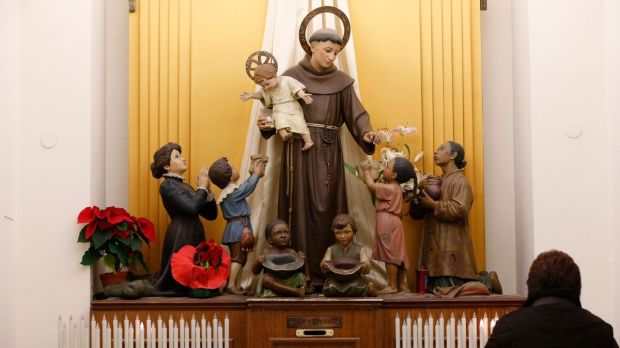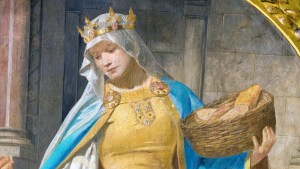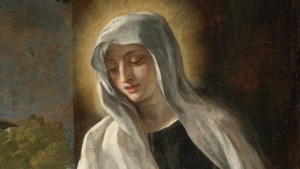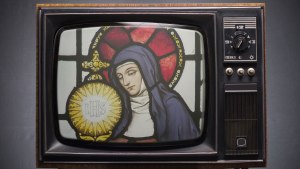“St. Anthony, help me find my keys!” One of the best parts about being Catholic is having the saints to come to our rescue? Many Christians invoke the intercession of the saints when faced with trials and tribulations.
“When God eludes us and we don’t feel worthy of his attention, we look for intermediaries, who pass on our intentions and who, in return, pass on God’s grace to us,” says Fr. Maximilien de la Martinière, a priest of the Diocese of Versailles and expert on popular piety. He goes on to list other possible forms of mediation, such as angels or objects like statues and medals, or places such as shrines.
On the subject of patron saints, he explains, “We say to ourselves that the closer this saint is to God, the more of a chance we have that he or she will bring our prayers to him. And at the same time, we have a particular affection for those who are close to us in what we ourselves experience on earth.” This includes regional or local saints linked to a place and its history, saints who practiced a particular profession we share, or saints who faced situations similar to ours.
Saints who “speak to us”
“What sets devotion in motion is friendship with saints: they ‘speak to us…’ But it’s also based on experiences we’ve had (“Saint so-and-so granted my prayer”) or tradition (“My grandmother prayed a lot to this saint…”).” Over time, we become “familiar” with saints.
Patron saints have been invoked by people — believers and non-believers alike — since the Middle Ages. In those days, guilds gathered by trade to obtain the protection of a saint, such as St. Honoratus for bakers. Another popular patron saint is St. Barbara, who was born in the 3rd century and was tortured by her father for choosing to give herself to Christ. Her father was struck by lightning just after beheading her. This link to lightning made her the patron saint of gunsmiths, artillerymen, and firemen.
Indirect connections
Sometimes, the reason for a certain patronage is an anecdote attributed to a very ancient saint. Such stories, added to a truly edifying life, have led popular tradition to assign saints the patronage of specific causes. St. Anthony of Padua, as we all know, is venerated by people who lose things. Why? Because this disciple of St. Francis is said to have miraculously recovered his precious annotated psalter, which had been stolen from him.
Until the 16th century, popular piety designated numerous saints to invoke protection against a particular plague or disease, sometimes based on legend and blurring the line between faith and superstition. For example, St. Wilgeforte, who is said to have lived in Portugal in the 4th century, was prayed to by unhappy wives.
Saints and their patronages proliferated so much under these circumstances that in 1630 Pope Urban VIII decided to regulate the naming of patron saints. “At the end of the 16th century, the Pontifical Congregation for the Sacraments was given the task of listing the saints, and authorizing (or not) their veneration. These duties would later be entrusted to the Congregation for the Causes of Saints, which is still in charge and ratifies patronages,” reads an April 20, 2018, article on the La Croix website.
Church and popular piety: A double movement
The Church thus invites us to draw inspiration from the exemplary lives of saints who, like us, have lived in the midst of the world. In fact, “when it comes to devotion to the saints, the Church institution and popular piety feed off each other,” Fr. Maximilien sums up.
“The Church may propose a saint that the faithful will make their own, such as St. Luke, patron saint of doctors. Or, more often than not, it’s the people who recognize someone’s sanctity through miracles, through oral tradition… Which leads the Church to study their canonization,” he concludes.
So don’t hesitate to ask for the intercession of these great figures of the faith!





